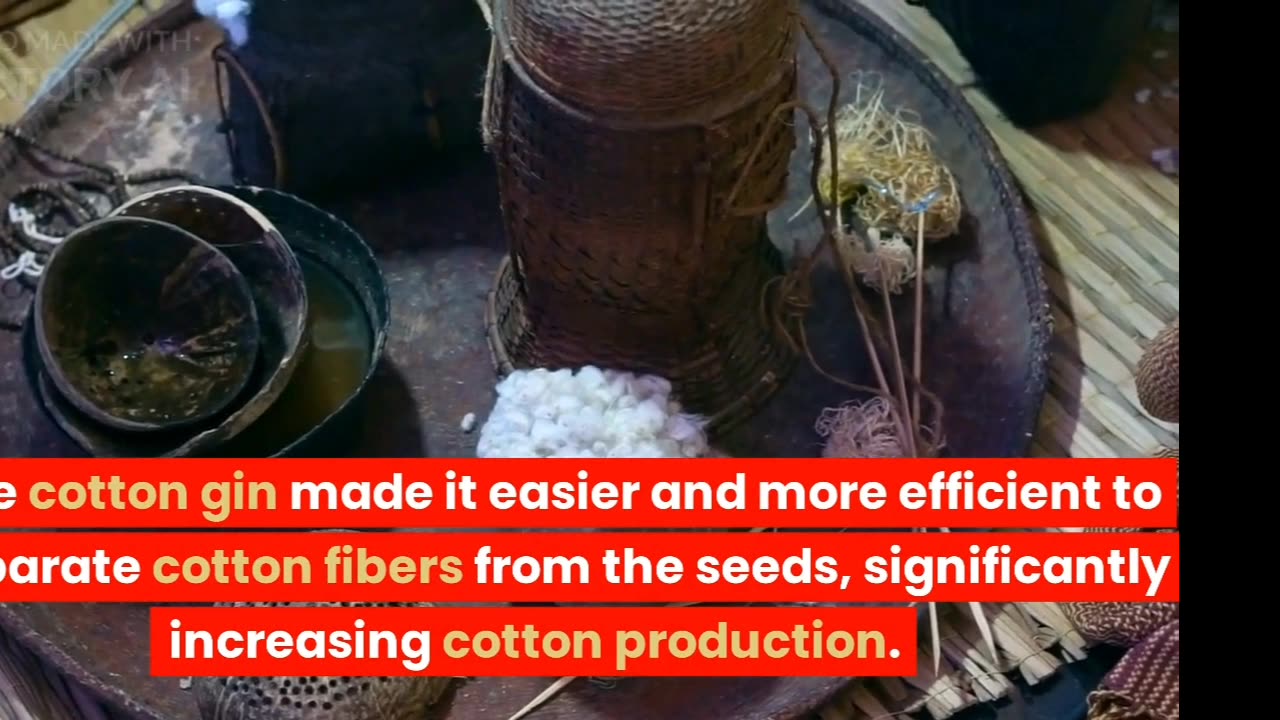Premium Only Content

"The Cotton Chronicles: A Journey Through the History of a Global Commodity"
The history of cotton is a tale of agricultural innovation, economic transformation, and global trade. Cotton, known botanically as Gossypium, has been cultivated for thousands of years. Its origins can be traced back to the Indus Valley civilization in what is now Pakistan and India, where cotton was woven into fabric as early as 6000 BCE.
Over time, cotton cultivation spread to various parts of the world, including Egypt, China, and the Americas. It became a staple crop in the southern United States during the 18th and 19th centuries, fueling the growth of the American cotton industry and the tragic system of slavery.
The invention of the cotton gin by Eli Whitney in 1793 revolutionized cotton production by automating the separation of cotton fibers from their seeds, making it easier and more profitable to produce cotton. This innovation significantly increased the demand for cotton, leading to the expansion of cotton plantations and the cotton trade.
Cotton played a pivotal role in the Industrial Revolution, serving as the primary raw material for the textile industry. The mechanization of cotton processing led to the establishment of textile mills in Europe and the United States, contributing to the rapid urbanization and industrialization of these regions.
The global cotton trade became a crucial part of international commerce, connecting cotton-producing regions in the Southern United States, India, Egypt, and other countries to textile factories around the world. Cotton also played a role in colonialism, as European powers sought to secure access to cotton-producing regions.
In recent decades, concerns about environmental sustainability and labor practices in the cotton industry have led to increased interest in organic and sustainable cotton farming methods. Additionally, advancements in biotechnology have led to the development of genetically modified cotton varieties that are resistant to pests and diseases.
Today, cotton remains one of the most important and widely used natural fibers in the world, with applications ranging from textiles to medical products. Its history reflects not only human ingenuity and economic progress but also the complex social and environmental challenges associated with its cultivation and production.
-
 1:13:23
1:13:23
Game On!
13 hours ago $5.45 earnedOregon IN, Colorado OUT! CFB Playoff Committee makes a statement with latest rankings!
40.6K3 -
 1:00:54
1:00:54
PMG
1 day ago $7.71 earned"Biden just allowed Ukraine to Attack Russia!!"
22.4K3 -
 15:52
15:52
Degenerate Jay
23 hours ago $20.75 earnedThe Joker 2 Cast Knew The Movie Was Bad?
78.9K21 -
 3:01
3:01
MoneyMindsTrading
16 hours ago $10.43 earned#1 Day Trader on Rumble : NVIDIA EARNINGS 🚀
77.6K6 -
 3:13:12
3:13:12
Price of Reason
19 hours agoDisney CEO Bob Iger PANICS after Trump win? Is Landman any good? The Game Awards Announces Nominees!
104K28 -
 2:51:40
2:51:40
Jerry After Dark
19 hours ago3 Point Contest | Presented By Ghost Energy
172K6 -
 2:24:56
2:24:56
Kim Iversen
16 hours agoRussia Threatens To NUKE Ukraine | RFK Jr Called Science’s True Voice By Former CDC Chief
149K336 -
 1:16:12
1:16:12
Savanah Hernandez
14 hours agoCorrupt Democrats attempt to stop Trump’s plan to fix America
131K99 -
 53:12
53:12
Glenn Greenwald
16 hours agoImprisoned For Journalism: Jeremy Loffredo On His Detention In Israel, Censorship & More | SYSTEM UPDATE #368
145K121 -
 51:42
51:42
Man in America
18 hours agoTrump, Elon, CBDCs, Digital Prison & the Great Taking w/ James Patrick
111K63